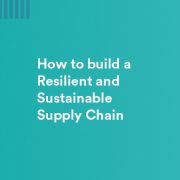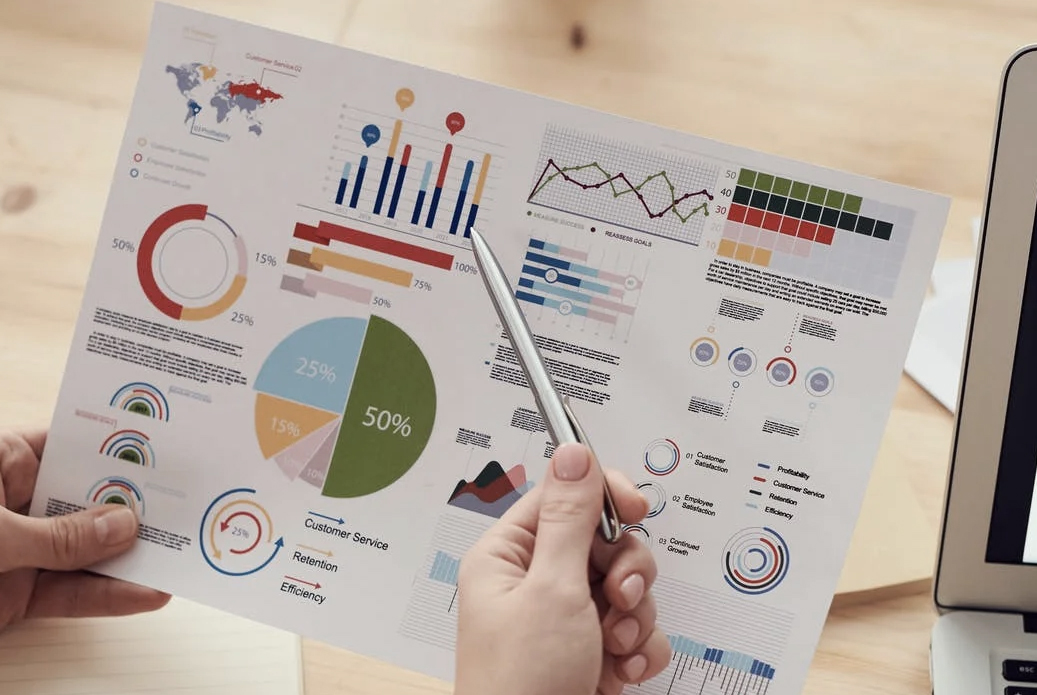Identify new market opportunities and develop your market entry plan
 Amidst the evolving trading relationship with the UK, agile Irish businesses have maintained a positive outlook on the market and taken proactive measures to mitigate the impact of Brexit on their operations.
Amidst the evolving trading relationship with the UK, agile Irish businesses have maintained a positive outlook on the market and taken proactive measures to mitigate the impact of Brexit on their operations.
Contrary to initial concerns, businesses have demonstrated resilience during this transition. Exports to the UK from companies supported by Enterprise Ireland have remained robust, experiencing a 13% increase last year. These exports now account for 29% of all exports.
While this is positive, there is no doubt that the impact of Brexit has varied across sectors and it is evident that certain companies require support to explore diversification opportunities in new markets. In response, the Post-Brexit Market Growth and Diversification Grant was launched earlier this year, to help businesses research and plan for expansion into markets beyond the UK.
The grant, developed under the Brexit Adjustment Reserve fund, can cover up to 80% of the expenses incurred in hiring a consultant, with a maximum grant limit of €36,000.
Through the guidance and expertise of an expert industry consultant, this grant provides recipients with the opportunity to develop their market entry strategies including:
- Market research / market intelligence gathering
- Identification of market segments and end customers
- Examining the best routes to market
- Value proposition and message development for each of the identified market segments
- Developing a market entry strategy
- Development of market launch strategy including tactical marketing activities
Companies receiving the grant can select an experienced consultant based in Ireland or seek assistance from Enterprise Ireland’s overseas offices to find a suitable consultant in their desired market.
To qualify, companies must have experienced a sales reduction of 5% or more in the UK market during 2020, 2021, or 2022 compared to their 2019 sales.
Learn more about the Post Brexit Market Growth and Diversification grant, and apply before 31st July.
Irish medical devices firms look to crucial Italian market
For the medical devices industry, there are few places on the planet as important as the Mirandola Biomedical District. North of the Italian city of Modena in the Emilia Romagna region, Mirandola is home to a significant cluster of more than 300 related companies.
In fact, it’s the largest biomedical district in Europe and third in the world after Minneapolis and Los Angeles in the United States, making it an incredibly important and fertile market for Irish medical device and medical technology (medtech) businesses.
Italy is also the third largest market for medical equipment in the EU, after Germany and France.
Irish firms bringing innovation to Italy
In September, 12 Irish medtech companies visited Mirandola to meet local business leaders as part of an Enterprise Ireland trade delegation aimed at driving further trade and collaboration.
This visit was incredibly valuable in bilateral terms, explains Alessio Nori is Senior Market Adviser, Life Sciences, Enterprise Ireland.
“Ireland is also of strategic importance in this sector,” he says, “as it is one of the top five global medtech hubs, along with Massachusetts, Minnesota, California and Israel. This was an ideal opportunity for Irish firms to showcase their innovative products and solutions to Italian buyers.”
During the visit, the Irish companies participated in more than 40 meetings with representatives of 16 Italian companies. “This proved an incredibly useful and significant opportunity for the Enterprise Ireland client companies who participated in the visit,” says Alessio.
The group also made site visits to some of the most important medical device manufacturers in the Emilia-Romagna region.
Among these visits was a factory tour of Orthofix, a US orthopaedics company which has a significant presence in Italy.
Marking the strategic importance of the trade visit, the Ambassador of Ireland to Italy, Patricia O’Brien, hosted a gala dinner for C-level Irish and Italian medical devices executives while the Irish delegation was in Italy.
Irish export confidence remains high
Despite the challenging economic environment, there was a buoyancy among our client companies about future business sentiment and optimism.
Nine-in-ten (91%) said they expect their exports to increase next year. Almost two-thirds (59%) said their export sales have increased so far this year when compared to last year, and almost one-third (32%) said they have remained stable.
Most of the exporters we surveyed (84%) plan to enter new markets in 2023, with North America highest on the list, followed by Europe and the UK. Two thirds (62%) of those planning to enter new markets told us that expanding their overseas market presence is their biggest priority for the next year.
A crucial, cutting-edge Italian cluster
Mirandola created €1.6bn in added value for the Italian economy in 2020. Companies in the cluster specialise in disposable plastic products for medical and healthcare use.
They are also looking ahead, and investing in regenerative medicine, for example. This looks to break down the boundaries between biomedical and pharma, medical devices and therapies.
This signposts particular opportunity for Irish firms. There are about 450 medtech, and medtech-related, companies in Ireland.
They design and produce products across a swathe of medicine and healthcare, including infusion solutions, haemodialysis, anaesthesia, continuous renal replacement therapies, cardiovascular and more.
“About 60 percent of these are Irish firms, with the remainder being multinationals,” explains Conor Byrne, Market Executive at Enterprise Ireland. “Many of the local companies are young, start-up companies that are developing advanced innovative medical technologies for global markets.”
Sales from these businesses account for about €2.1bn of the almost €13bn in annual exports of medical technologies from Ireland.
Medical Devices sector vital to Ireland and globally
Overall, the medical devices sector employs more than 40,000 people in Ireland and companies here lead the way on multiple fronts.
Firms located in Ireland manufacture 80pc of cardiovascular stents used globally, along with 75pc of knee implants, 50pc of ventilators used in acute hospital wards and 25pc of injection devices for diabetics.
“Site visits such as those during our recent trade event in Italy are vitally important for Irish companies to understand the needs of Italian companies,” explains Alessio. “They allow these businesses to discover how they might tailor their offerings to enable them to enter or grow within the Italian market. That in turn boosts their international expansion efforts.”
Appreciate the long-term opportunity
While the sales cycle can be long in this sector, it’s worth bearing in mind that medical device companies typically develop stable products that remain on the market for a decade or more, and rely on a strong, stable supply chain to keep products flowing to the market.
That means once companies are approved as suppliers, they typically enjoy long-standing relationships, often getting orders spanning five to 10 years.
Enterprise Ireland client companies interested in exporting into the Italian medical devices sector should contact the Enterprise Ireland office in Milan, which has extensive connections in Mirandola and beyond.
Whether you need to connect with decision-makers in production, or insights around logistics or any other department, Enterprise Ireland can offer support and help make the introductions you need.
Learn more about exporting to Italy and gain valuable market insights here.
Discover more about Ireland’s life sciences and medical devices sector here.
Building resilient and sustainable supply chains to future-proof Irish business
Having weathered the storms of Brexit, global trade divisions, the Covid-19 pandemic and energy inflation, the next challenge for Irish exporters is to future-proof their business by developing resilient and sustainable supply chains.
This will require rethinking supply chain strategy and adhering to new EU legislation on corporate sustainability reporting. The challenges and potential solutions involved were analysed at the ‘Building a Resilient and Sustainable Supply Chain’ webinar, the first webinar in the Client Solutions event series.
Pain-points and solutions
“The Covid-19 pandemic and other events have seen companies fundamentally re-examine their supply chains and certain themes have emerged including localisation, diversification, digitisation, sustainability and Just-in-Time versus Just-in-Case,” said Mike Hogan, Senior Executive Global Sourcing, Enterprise Ireland
Mike’s presentation focused on supply chain pain-points and solutions identified by Enterprise Ireland client companies.
Localisation and ‘Alt Asia’
“As companies begin to ‘nearshore’ more they’re beginning to look at what our local is and local for Ireland in many cases is two to three hours flying time or accessible points by sea from Ireland,” said Hogan.
Local also means looking to suppliers in the Balkans and the North African ‘Mediterranean Lake’ countries such as Morocco and Egypt. The new post-Brexit ferry and cargo routes into France, Holland and Spain “have opened up opportunities for a lot of our clients to examine new suppliers,” added Hogan.
And as labour costs rise in China, some businesses are reducing their dependence on China and looking to what are termed the ‘Alt Asia’ countries such as Vietnam (production) and the Philippines (back-end services) for suppliers. “While they may not be able to supply all the aspects of China in terms of a one-stop-shop, suppliers in these countries can be combined to bring together the necessary inputs that people require for their businesses,” said Hogan.
“The key takeaway from our clients is that they are looking at combining longer and shorter supply chains and also that supply chain management is a continuous activity. It’s not something you do because you lose a supplier – it’s something that should be going on in the background on a continuous basis.”
“The key takeaway from our clients is that they are looking at combining longer and shorter supply chains and also that supply chain management is a continuous activity. It’s not something you do because you lose a supplier – it’s something that should be going on in the background on a continuous basis.”
Diversification and ‘Just-in-time’ versus ‘Just-in-Case’
Some Ireland client companies are beginning to reduce their over-reliance on specific suppliers. “Here we’re seeing examples of companies engaging with additional suppliers at a lower level to keep them on standby,” said Hogan.
He also predicts a shift from the ‘Just-in-Time’ supply strategy that has held sway for decades towards a more ‘Just-in-Case’ approach. Companies are holding additional inventories to reduce risk, but this also creates challenges around raising capital and inventory management, he cautioned.
Resources for sourcing new suppliers
The Enterprise Ireland Market Research Centre should be the first stop for companies looking to source new suppliers, said Hogan. He added that trade shows, the commercial sections of foreign embassies based in Dublin and London, Chamber of Commerce networks in Eastern Europe and North Africa, and specialist British trade bodies are also valuable sources of leads.
And he emphasised that given the multinational profile of the Irish workforce, companies should look at tapping into their own reservoir of talent to liaise with suppliers in their employees’ native countries.
Sustainable supply chains
The impact on supply chains from climate change was addressed by Ingrid de Doncker, Co-founder and Head of Innovation, Future Planet.
“Climate change is the biggest challenge for this generation of business leaders to solve. The future of our businesses and the planet is in our hands. It all comes down to responsible production and consumption and how we can source and buy products and services better.”
“By embracing sustainability in supply chains, we not only secure a better future for our planet and society, but also create more resilient, innovative, and profitable businesses.”
De Doncker also outlined how new EU legislation on corporate sustainability reporting will impact how businesses operate.
“It’s going to be the most challenging business transformation we will ever see,” she said, adding that “an unstoppable legal train has left the EU station.”
The Corporate Sustainability Reporting Directive (CRSD), which came into force in January 2023, will require EU-based companies to strengthen and standardise their sustainability reporting from 2025 onwards.
The directive aims to eliminate greenwashing, and companies that fall under the CRSD will need to prioritise their sustainability reporting strategy around five key areas, said de Doncker. These are:
- Double materiality This involves looking inwards to assess sustainability risks to the business and its impact on environment & society.
- Looking both ahead and back Companies must provide retrospective and forward-looking sustainability analysis in their financial and management statements.
- Stricter rules around climate-related disclosures in particular disclosure of Scope 3 emissions.
- Third-party assurance Sustainability information must pass through an external audit process before publication.
- Digital data and tagging Companies must prepare financial and management statements in XHTML or electronic format in accordance with the EU taxonomy.
The CRSD will be introduced on a phased basis, beginning with companies and public interest entities already subject to the EU’s Non-financial Reporting Directive (NFRD). By 2027, all companies with 10 or more employees will need to be CRSD-compliant.
For now, said de Doncker, companies should consider two fundamental questions when planning their sustainable supply chain strategy:
- How will you adapt your business model and your supply chain to reduce the impact of climate change?
2. What measures will you take to mitigate the impact of your business on the environment and society?
To adapt or mitigate your business and your supply chain to climate change, your first port of call is assessing and improving these related material challenges:
- Sustainable Procurement
- Green Logistics
- Human Rights and Stakeholder collaboration
- GHG Scope 3 Management
- Circular Economy and End of Life Waste
- Sustainable Product & Packaging Design
Building a resilient and sustainable supply chain is not always easy, but always worthwhile. To ensure transparency, collaboration across the supply chain and compliance to reporting standards, ESG enabled software can guide the journey to sustainable growth to Live Better in your business, Buy Better from your supply chains and Design Better for your customers.
Building a Resilient and Sustainable Supply Chain
Building a resilient and sustainable supply chain was the first in a series of Client Solutions events and webinars being hosted by Enterprise Ireland. The webinars offer practical solutions to the acute challenges facing businesses.
To register for upcoming events and to watch the recordings, visit Client Solutions Events
How Irish companies are rocketing into the space industry
Ireland may not be the first country to spring to mind when you talk about space travel or exploration, but recently this industry has proved itself to have plenty of opportunities for Irish innovation, both from companies and research bodies.
The James Webb Space Telescope
Many businesses based in Ireland are already working in the area, thanks to our involvement with the European Space Agency (ESA). What’s more, several Irish companies are now playing a pivotal role in some of the most thrilling and high-profile space missions.
One such mission was the launch of the James Webb Space Telescope (JWST, or simply Webb), the next great space science observatory following the famous Hubble Telescope.
The Webb was launched from ESA’s spaceport in Kourou, French Guiana, on Christmas Day 2021. It now resides one-and-a-half million kilometres from Earth, hovering in line with our planet as it orbits the sun.
Over 25 years in development, the Webb telescope has the ability to look back 13.5 billion years in time to observe the birth of the first galaxies and the lifecycle of stars and exoplanets.
Webb follows the Hubble Telescope in the line of great space observatories. Both have different scientific capabilities and will operate together, complementing each other, for several years.
In fact, according to Bryan Rodgers, Senior Development Executive at Enterprise Ireland and a member of the Irish delegation to the ESA, Webb has the capacity to do far more than the Hubble.
“The Webb has over six times the light-gathering capacity and is a hundred times more sensitive, with the ability to peer through clouds of dust by capturing light in the infrared part of the spectrum.”
“By looking back to the early universe using infrared detectors, Webb hopes to answer some vital questions about the formation of our universe, the make-up of so-called dark matter, and what the development of galaxies can tell us about the future of the universe.”
How Irish companies contributed to the development and launch of the JWST
Webb is the result of an international project led by NASA with the ESA and the Canadian Space Agency (CSA). Within the ESA’s contribution, two Irish companies and an Irish research institute played significant roles in the development of the Webb’s scientific instruments and in its launch into space.
“Firstly, there was significant Irish input into the development of the infrared detector technology,” comments Bryan. “Professor Tom Ray of the Dublin Institute for Advanced Studies (DIAS) was Co-Principal Investigator for the Mid-InfraRed Instrument (MIRI) on Webb, which will produce images and spectra with unprecedented sharpness and sensitivity.”
“Professor Tom Ray and his team from DIAS also provided MIRI’s infrared filters, which breaks up the light into its various components, and imaging software that will analyse the instrument data sent back to Earth and produce scientific images.”
An Irish company also played an important role in Webb’s launch into space via an Ariane 5 launcher.
“Réaltra Space Systems Engineering designed and manufactured the video imaging system onboard the Ariane 5 launch vehicle, which gave us impressive high-definition video images of the separation of the launcher’s fairing and separation of the telescope itself,” says Bryan.
“The final images of Webb moving into space on Christmas Day in 2021 came from Réaltra’s technology.”
Interestingly, Réaltra’s system was originally designed for the Ariane 6 launch vehicle, which is due its first flight in the second half of 2022.
“In addition, a second Irish company, Nammo Ireland, provided structural supports for the Vulcain engine that powers Ariane 5 – and will be involved in producing components for both the Vulcain and Vinci engines on the new Ariane 6 launch vehicle.”
Opportunities for Irish businesses in the space industry
The involvement of these Irish entities came about as a result of Ireland’s membership of the ESA, which is managed through the Department of Enterprise, Trade and Employment.
Enterprise Ireland plays a huge role in enabling this work, by supporting and guiding Irish companies and research institutes in developing technologies through ESA programmes, and in commercialising these technologies in the worldwide space market, with over 100 companies supported to date.
“The success of the Irish entities involved in the ground-breaking JWST project underlines the growth in opportunities in the commercial space market for innovative Irish companies with exciting technologies that can be used in many different sectors, such as automotive and medical,” notes Bryan.
“These opportunities will only become more plentiful as our understanding of space grows and develops. We are confident that more Irish companies will be involved in such thrilling projects in the future.”
Contact Bryan Rodgers to find out how Enterprise Ireland can help you successfully bid for European Space Agency contracts or explore other opportunities in the space industry.
Using market intelligence to inform your export plan
The saying that ‘knowledge is power’ is certainly true of successful exporting. Companies must understand their customers’ requirements, cultural considerations, market trends and what competitors in the market are doing, in order to succeed.
Insights gained from high-quality market research are essential for good business decisions for companies with the ambition to grow, export and, indeed, survive. While successful products and services are built on sound market research, a continual process of keeping up-to-date with business intelligence is required, which can be time-consuming and costly.
Market Research Centre
That is one reason Enterprise Ireland’s Market Research Centre is such a valuable resource. It is the largest repository of business intelligence in Ireland and contains thousands of world-class market research insights, available to Enterprise Ireland supported companies.
Reports include company, sector, market and country information, which help businesses to explore opportunities and compete in international markets. We use databases from blue-chip information providers such as Gartner, Frost & Sullivan, Mintel and others, which provide authoritative, verified information that is independent and reliable. Some of these reports cost tens of thousands of euro individually, so the value of accessing the service is immense.
Using market intelligence to assess new markets
The Market Research Centre is staffed by eight information specialists who help clients locate the most appropriate sources of knowledge for their requirements. The specialists can track down niche market intelligence that is not available through internet research and can also facilitate access to industry analysts to provide bespoke briefings that deep-dive into subject areas.
While the UK and European markets remain vitally important for exporters, increasingly diversification into more distant markets is a strategic option. Critical to all such business decisions is access to authoritative market research.
Using insights to make an impact
An example of how the centre helps companies to explore opportunities in overseas markets is workforce travel company Roomex. Over the last two years, the company has targeted the UK and Germany and is now looking at the huge potential of the US market. Information specialists helped the company gain valuable insights by providing access to global company, country, market and sector data which helped the Roomex to analyse their target customer and competitor base.
Enterprise Ireland’s research hub offers access to extensive predictive research on future trends, which is invaluable for companies interested in innovation. Knowledge of what might impact a market next provides an opportunity to develop new products or solutions. There are huge opportunities arising from disruptive technologies, such as driver-less cars, but also risks to companies which are not looking ahead
Growing your business
Companies which are serious about exporting, growing and future-proofing their business should put continuous research at the heart of their strategy. If your company is considering expanding into new markets the Market Research Centre’s extensive resources and expertise should be your first port of call.







